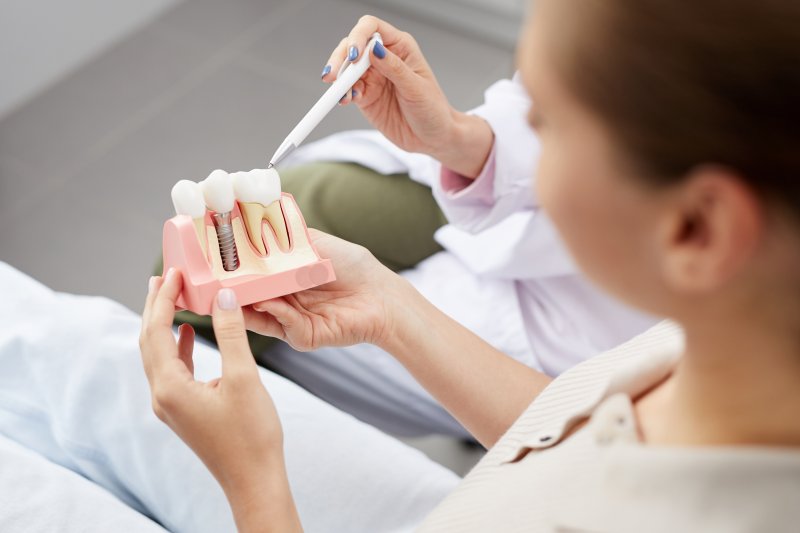
Dental implants are unlike any other tooth replacement solution on the market. Dentures and dental bridges offer great benefits, but permanent prosthetics can last for decades and make it possible to maintain a more youthful appearance because of continuous jawbone stimulation. And while these are just a few of the many reasons people choose this method of treatment for tooth loss, there is still one question that you might have. Can dental implants get cavities? The only way to get the answer is to keep reading.
How Do Cavities Form?
Since you were a child, you probably remember hearing your dentist tell you that eating too much candy, drinking too much soda, and neglecting your nighttime brushing and flossing routine will cause cavities.
Your dentist was not wrong, as all of these and plenty more can lead to tooth decay that requires restorative treatment (i.e., dental fillings, dental crowns, etc.). But what happens inside the mouth for these dental caries to appear?
When plaque forms (often caused by sugary/starchy foods and poor oral hygiene), it is because bacteria begin to feed on the remnants left behind on your teeth. When allowed to remain, it can begin to harden, resulting in tartar, also known as calculus. This is why specialized instruments are required to remove this from your mouth.
The acids from the plaque then begin to eat away at the hard, outer enamel, creating small holes – cavities. If left to spread, it can penetrate to the next layer – dentin – before it eventually reaches the pulp.
Can Cavities Form in Dental Implants?
Now that you have a clearer understanding of how cavities form, it’s easy to discern that your dental implants cannot be affected. Made from titanium (the post) and non-porous materials (the restoration), bacteria cannot penetrate, as there is nothing for it to “seep” into.
Dental implants are artificial teeth, so technically, they are immune to cavities; however, this doesn’t mean the rest of your smile is safe. If you have any natural teeth remaining, there is a good chance that they can become impacted by tooth decay if you neglect to care for your teeth.
Your gums are also vitally important to the success and longevity of your dental implants, which is why you must commit to maintaining a good oral hygiene routine.
Eating a healthy diet, giving up bad habits, and not using your teeth as tools are also beneficial ways to keep your new teeth firmly in place and free of any damage. Allowing decay or gum disease to form in other areas of the mouth can impact your dental implants if you’re not careful, so don’t be afraid to ask your dentist for help so that you can avoid any problems in the future.
About the Author
Dr. Richard Carlson has more than 35 years of experience and is a trusted dentist in Jacksonville. After completing his dental doctorate at the University of Florida College of Dentistry, he finished his General Practice Residency Program at the University of Texas. Alongside his colleagues, Dr. Carlson and his team are equipped to provide safe and effective solutions to all patients, especially those who are suffering from tooth loss. Using dental implants, he and his team can deliver exceptional results that last. If you or a loved one need help to take better care of your new prosthetics, visit our website or call (904) 262-8449.
